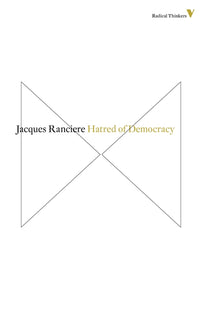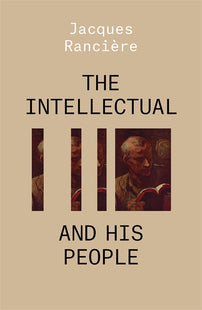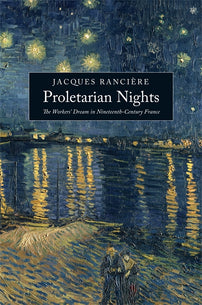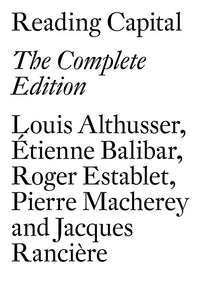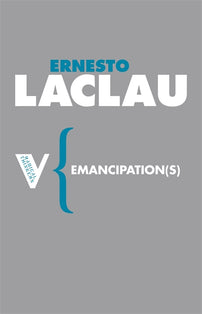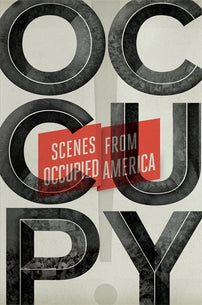Democracy, Equality, Emancipation in a Changing World
The idea of emancipation makes us think of politics in terms of a conflict of worlds in contrast to the dominant idea that assimilates it to a conflict of forces.
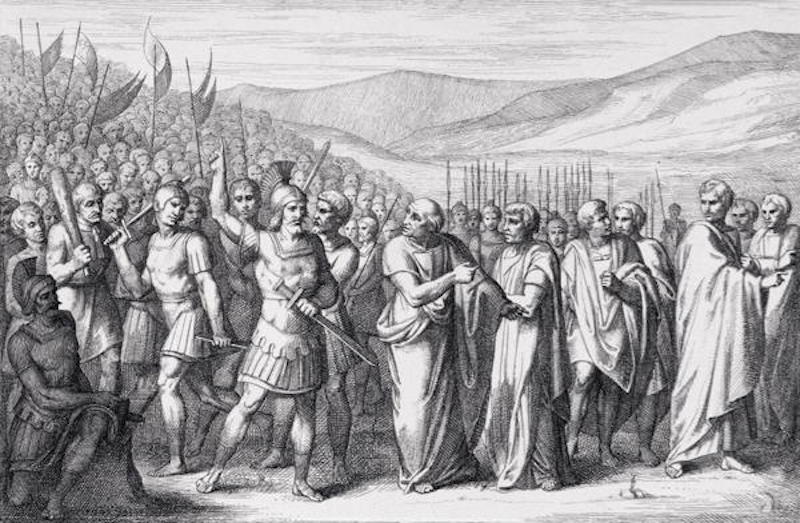
This text — delivered as a talk at B-FEST (International Antiauthoritarian Festival of Babylonia Journal) on May 27th in Athens — was first published in Bablyonia, in both English and Greek.
I will start from the knot between two of the concepts that are proposed to the reflection of our panel: equality and emancipation. I will briefly recall the two main points that are implied for me in the idea of emancipation.
The first one is that equality is not a goal to be reached. It is not a common level, an equivalent amount of riches or an identity of living conditions that must be reached as the consequence of historic evolution and strategic action. Instead it is a point of departure. This first principle immediately ties up with a second one: equality is not a common measure between individuals, it is a capacity through which individuals act as the holders of a common power, a power belonging to anyone. This capacity itself is not a given whose possession can be checked. It must be presupposed as a principle of action but it is only verified by action itself. The verification does not consist in the fact that my action produces equality as a result. It enacts equality as a process. I act, we act as if all human beings had an equal intellectual capacity. Emancipation first means the endorsement of the presupposition: I am able, we are able to think and act without masters. But we are able to the extent that we think that all other human beings are endowed with the same capacity. Second, emancipation means the process through which we verify this presupposition. Equality is not given, it is processual. And it is not quantitative, it is qualitative.
The idea of emancipation dismisses the opposition made by the so-called “liberal” tradition between freedom thought of as the inner autonomous power and dignity of the individual and equality thought of as the constraint of the collective over individuals. “Free” is just like “equal”: it does not designate a property of individuals. It designates the form of their action and of their relation to other individuals. The presupposition of equal capacity is a principle of shared freedom opposed to the presupposition that the human beings can only act rationally as individuals and cooperate rationally in a community according to a principle of subordination. “Autonomy” has been a key concept in modern emancipatory politics. But it must be understood correctly. It does not mean the autonomous power of a subject as opposed to external forces: it means a form of thinking, practice and organization free from the presupposition of inequality, free from the hierarchical constraint and the hierarchical belief. It means the opposition of two kinds of common sense and two common worlds, one based on the process of verification of inequality and the other based on the process of verification of equality. This is what is entailed in the concept of disagreement that I proposed to conceptualize the political conflict. Disagreement is not a conflict of forces, nor even a conflict of ideas and values. It is a conflict between two common worlds or two common senses. This is what is meant by the scenario of secession of the Roman plebeians on the Aventine that I put at the center of my analysis of what “disagreement” means. In the common sense which grounds the domination of the patricians, there can be no discussion between the patricians and the plebeians because the plebeians do not speak. They just make noise. The presupposition of inequality is not a simple idea, it is embodied in the concrete reality of a sensory world so that the plebeians must not simply argue that they are speaking beings too but also invent a whole dramaturgy to create the sensory world where the heretofore unthinkable — and even imperceptible — fact that they speak is made perceptible.
This idea of emancipation makes us think of politics in terms of a conflict of worlds in contrast to the dominant idea that assimilates it to a conflict of forces. It is a conflict of common worlds. Social emancipation is not the choice of community against individualism. The very opposition of community to individualism is pointless. A form of community is always a form of individuality at the same time. The point is not about the presence or absence of social links, it is about their nature. Capitalism is not the reign of individuality: it organizes a common world of its own, a common world based on inequality and constantly reproducing it, so that it appears as the world — the real existing world in which we live, move, feel, think, and act. It is the already existing world with its mechanisms and its institutions. In front of its sensible evidence the world of equality appears as an always tentative world that must be perpetually re-drawn, reconfigured by a multiplicity of singular inventions of acts, relations, and networks which have their proper forms of temporality and their proper modes of efficiency. That’s why the secession of the plebeians on the Aventine is paradigmatic: the world of equality is a “world in the making”, a world born of specific breaches in the dominant common sense, of interruptions of the “normal” way of the world. It implies the occupation of specific spaces, the invention of specific moments when the very landscape of the perceptible, the thinkable, and the doable is radically reframed. The conflict of worlds is dissymmetrical in its principle.
But the fact is that this dissymmetry has long been obscured by the evidence of a middle term that seemed to be common to the world of equality and the world of inequality and also to designate at the same time a world and a force. That term was work — with its twin, named labour. On the one hand, work was the name of the force that capitalism gathered and organized for its own benefit and the reality of the condition of those who were exploited by capitalism. But, on the other hand, it was the force that could be re-assembled against that capitalist power, reassembled both as a force of struggle in the present and the form of life of the future. In such a way the world of labour appeared to be both the product of inequality and the producer of equality. The two processes were made one single process. The Marxist tradition set up this conjunction within the “progressive” scenario according to which inequality is a means, a historical stage to go through, in order to produce equality. Capitalism was said to produce not only the material conditions of a world of equal sharing of the common riches but also the class that would overthrow it and organize the common world to come. To play this role, the workers’ organisation had to take up and internalize, first in the present of struggle, next in the future of collective production, the virtue that had been instilled into them by capitalism, the virtue of factory discipline.
The anarchist tradition opposed to that view of inequality producing equality another view emphasizing the constitution of free collectives of workers anticipating the community to come through both egalitarian forms of organization and the constitution in the present of forms of cooperative work and other forms of life. But this counter-position still rested on the idea of the “middle term”: the idea of work as being at once a form of life, a collective force of struggle, and the matrix of a world to come. It is clear that work can no longer be posited today as the identity of a force and a world, the identity of a form of struggle in the present and a form of life of the future. Much has been said about either the end of work or its becoming immaterial. But capitalism did not become immaterial even if part of its production is knowledge, communication, information, and so on. Material production did not disappear from the common world that it organizes. Instead it was relocated, far from its ancient locations in Old Europe, in new places where the work force was cheaper and more used to obeying. And immaterial production also implies both classic forms of extraction of surplus-value from underpaid workers and forms of unpaid labour provided by the consumers themselves. Work did not disappear. Instead it was fragmented, torn out and dispersed in several places and several forms of existence separated from one another so as to constitute no more a common world.
Along with this economic disruption came the legislative reforms adopted all over the world to make work again a private affair. Those reforms did not simply remove the rights and the social benefits acquired by the workers’ struggles of the past, they tended to turn work, wages, job contracts, and pensions into a mere individual affair, concerning workers taken one by one and no longer as a collective. Work has not disappeared but it has been stripped of the power that made it the materially existing principle of a new world, embodied in a given community. This means that we are now obliged to think of the process of emancipation, the process of equality creating its own world as a specific process, disconnected from the transformations of the global economic process. We are also facing the difficulty of dealing with this situation. I think that this new situation and the difficulty to deal with it are perfectly expressed by the slogans that have resonated in several languages during the recent movements: “democracia real ya," “Nuit debout," “occupy everything,” or “Na min zisoume san douli." All of them take their efficiency in an ambiguous interface between the logic of the conflict of forces and a logic of opposition of worlds.
“Occupy” and “occupation” are the most telling examples of this ambiguity. They come from the historical tradition of working class struggle. The “sit-in strikes” of the past, strikes when workers occupied the workplace, made a conflict of forces identical with a demonstration of equality. Not only did the strikers block the mechanism of exploitation but also they affirmed a collective possession of the workplace and the instruments of work, and they turned the place dedicated to work and obedience into a place for free social life. The new “occupation” takes up the principle of transforming the function of a space. But this space is no more an inside space, a space defined within the distribution of economic and social activities. It is no more a space of concrete fight between Capital and Labour. As Capital has increasingly become a force of dislocation which destroys the places where the conflict could be staged, occupation now takes place in the spaces that are available: those buildings that the contingencies of the real estate market has left empty or the streets which are normally destined to the circulation of individuals and commodities — and sometimes to the demonstrations of protesters. The occupying process transforms those spaces destined to the circulation of persons, goods, and value into places where people stay and affirm by the very fact of staying their opposition to the capitalist powers of circulation and dislocation.
The name “occupation” is still the same and it still about perverting the normal use of a space, but the occupying process is no more a conflict of forces to take over a strategic place in the process of economic and social reproduction. It has become a conflict of worlds, a form of symbolic secession that is both materialized and symbolised in a place aside. Occupy Wall Street took place in a park situated beside the center of this financial power that has destroyed the factories that previously were the site of occupation movements. The Spanish movement of the Indignados created, during an electoral campaign, assemblies presenting themselves as the seat of “real democracy now." Real democracy was pitted against the self-reproduction of the representative caste. But “real democracy” also was, in the Marxist tradition, the future of material equality opposed to bourgeois “formal democracy." It was a future promised as a consequence of the takeover of State power and the organisation of collective production. Now it designates a form of relation between human beings that must be practiced in the present both against and beside the hierarchical system of representation. Real democracy in a sense became more formal than the “formal democracy” stigmatized by the Marxist tradition. Not only did it equate the enactment of equality with the form of the assembly where all individuals have an equal right, but it imposed a number of rules such as the equality of time allowed to all speakers and the power for individuals to block the decision of the majority.
Occupation has become the name of a secession. But that secession is no more the action of a specific community claiming their rights. Instead it appears to be the materialization of an aspiration to the common, as if the common were something lost, something that had to be reconstructed through the specific act of the assembling of a multitude of anonymous individuals publicly performing their being equal as the same as their being-in-common. That’s why that secession, that being-aside, was expressed in paradoxical terms, and notably by the strange slogan adopted by many assemblies as the affirmation of real democracy: ”Consensus instead of leaders." It seems paradoxical to posit consensus as the specific virtue of the dissensual assembly gathered in occupied spaces. It can be objected that the dissensus precisely consists in the constitution of another form of community based on horizontality and participation. But the problem of democracy is not so much about the number of people that can agree on the same point as it is about the capacity to invent new forms of collective enactment of the capacity of anybody.
By underlining this paradox, I am not willing to disparage those movements. Some people have pitted against the pacifism of the consensual assemblies the necessity of violent action directly confronting the enemy. But the “confrontation with the enemy itself” can be thought of and practiced in different ways and most of the forms of direct action opposed to the pacific assemblies — for instance destruction of ATMs, shop windows, or public offices — had the same character as them: they were also symbolic expressions of an opposition of worlds rather than strategic actions in a struggle for power. Other people have precisely criticized this lack of strategy; they said that those movements could change nothing of capitalist domination and they made new calls for the edification of avant-garde organizations aimed at taking power. But such an answer is unable to solve the paradoxes of emancipation. The strategic world view that sustains it is a view of inequality producing equality. That strategy has been enacted by the communist parties and the socialist states of the twentieth century and we all know their results. Inequality only produces inequality and it does it ceaselessly. Moreover this strategic world view has lost the basis on which it rested, namely the reality of work/labour as a common world.
We are now facing again the dissymmetry between the process of equality and the process of inequality. Equality does not make worlds in the same way as inequality. It works, as it were, in the intervals of the dominant world, in superimposition to the “normal” — meaning the dominant — hierarchical — way of world making. And one of the main aspects of the dissymmetry is precisely the fact that the process of equality dismisses the very separation of the ends and the means on which the strategy of inequality producing equality is predicated. This is what freedom means ultimately. Freedom is not a matter of choice made by individuals. It is a way of doing. A free action or a free relation is an action or a relation that finds its achievement in itself, in the verification of a capacity and no more in an external outcome. In the hierarchical societies of the past it was the privilege of a small category of human beings, called the “active men” in contrast to all those who were subjected to the reign of necessity. In modern times, freedom was democratized first in the aesthetic domain with the Kantian and Schillerian category of free play as an end in itself and a potentiality belonging to everyone. Then the young Marx did more as he made it the very definition of communism that he equated with the end of the labour division: communism, he said in the Paris Manuscripts, means the humanisation of the human senses; it is the state of things in which this capacity of humanisation is deployed in itself instead of being used as a simple means for earning one’s living. And he illustrated it with the case of these communist workers in Paris who gathered at a first level to discuss their common interests but did it more deeply to enjoy their new social capacity as such.
True enough Marx’s analysis relied on the identification of work as the essential human capacity. When work can no more play this role, the task of creating a world where the ends of the action are no more distinct from their means may seem to become paradoxical in itself. The free and equal community is something that can no more rely on a given empirical substratum. It must be created as an object of will. But, on the other hand, this will can no more be posited in the terms of the means and ends relation. That’s why it tends to become a global desire for another form of human relations. This turn was best illustrated in the Occupy Wall Street movement by the multiple extensions of the use of the verb “occupy” that made it the signifier of a global conversion to another way of inhabiting the world: “occupy language," “occupy imagination," “occupy love," and eventually “Occupy everything” which seems to mean: change your way of dealing with everything and with all existing forms of social relationships. Perhaps this enigmatic slogan finds its best translation in the Greek slogan “Na min zisoume can douli” (“Don’t live like slaves anymore”). This sentence is not only an invitation to rebel against the intensification of capitalist rule. It is an invitation to invent here and now modes of action, ways of thinking, and forms of life opposed to those which are perpetually produced and reproduced by the logic of inequality, the logic of capitalist and state domination.
I think that this request found a response in the invention of this form called “free social space” — a form that took on a particular cogency in the social movements of this country. What makes this notion significant in my view is that it calls into question the traditional oppositions between the necessities of the present and the utopias of the future or between harsh economic and social reality and the “luxury” of “formal “democracy." Those who opened such spaces made it clear that they did not only wanted to respond to situations of need, dispossession, and distress created by the intensification of capitalist rule. They did not want only to give shelter, food, health care, education, or art to those who were deprived of those goods but to create new ways of being, thinking, and acting in common. We can draw from this a wider definition of this form: a free social space is a space where the very separation of spheres of activity — material production, economic exchange, social care, intellectual production and exchange, artistic performance, political action, etc. — is thrown into question. It is a space where assemblies can practice forms of direct democracy intended not simply to give an equal right of speech to everybody but to make collective decisions on concrete matters. In such a way a form of political action tends to be at the same time the cell of another form of life. It is no longer a tool for preparing a future emancipation but a process of invention of forms of life and modes of thinking in which equality furthers equality.
What this sentence asks us to do is to change all the forms of organization of life and the modes of thinking that are determined by the logic of inequality, the logic of capitalist and state domination.
Of course we know that these cells of a new social life are constantly subjected to internal problems and external threats. This “already present future” is always at once a precarious present. But it is pointless, I think, to see there the proof that all is vain as long as a global revolution has not “taken” power and destroyed the capitalist fortress. This kind of judgement is a way of putting the fortress in our heads, of instituting a circle of impossibility by proclaiming that nothing can be changed before everything has been changed. Emancipation has always been a way of inventing, amidst the “normal” course of time another time, another manner of inhabiting the sensible world in common. It has always been a way of living in the present in another world instead of deferring its possibility. Emancipation only prepares a future to the extent that it hollows in the present gaps which are also grooves. It does so by intensifying the experience of other ways of being, living, doing and thinking. The free social spaces created by the recent movements inherit the world forms — cooperatives of production and forms of popular education — created by the workers’ movements of the past and notably by anarchist movements. But our present can no more share the belief that sustained the forms of self-organization of the past. It can no more rely on the presupposition that capitalism produces the conditions of its own destruction and that work constitutes an organic world of the future already in gestation in the belly of the old world. More than ever the world of equality appears to be the always provisory product of specific inventions. Our present urges us to rediscover that the history of equality is an autonomous history. It is not the development of strategies predicated on the technological and economic transformations. It is a constellation of moments — some days, some weeks, some years which create specific temporal dynamics, endowed with more or less intensity and duration. The past left us no lessons, only moments that we must extend and prolong as far as we can.
[book-strip index="1" style="display"]